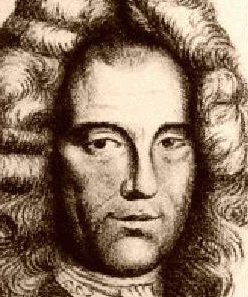
Jan Dismas Zelenka
Zelenka was born in 1679, in Loudovice, Bohemia into a family of musicians. His father was an organist, he studied in the Jesuit College in Prague, and he maintained relations with his school even later on in his life. In 1710 he joined the royal orchestra in Dresden as first violone player. Apart from a longer stay in Vienna, short periods spent in Prague, and a journey in Italy, Zelenka lived the rest of his life in Dresden. The Florence on the Elbe, as the capital of Saxony was called, was a major political and cultural hub, which attracted artists. One of its golden eras was under the reign of Augustus II the Strong, Elector of Saxony and King of Poland. In order to be elected as King of Poland he had to convert to Roman Catholicism. This is how the capital of the predominantly Lutheran Saxony became the centre of two Churches: the Roman Catholic and the Lutheran. As long as his contemporary, Bach composed Lutheran liturgical music, Zelenka composed several pieces in Dresden for the Catholic Church. His oeuvre amounts to 150 compositions, including 21 masses, psalms, 3 oratories with biblical subjects. His compositions prove the high quality of the court orchestra in Dresden he was the Kappelmeister of for 5 years. During his stay in Vienna he studied with Johann Josef Fux, who obviously greatly influenced him. The year 1723 is a milestone, an outstanding moment in Zelenka’s life and probably the peak of his career, as the Jesuits commissioned him to compose a piece for the coronation of Charles VI. in Prague. Zelenka himself composed his oratory entitled Sub olea pacis, the solo vocal parts of which were performed by members of the Czech nobility. Later, Zelenka’s life in Dresden was relatively uneventful. He gradually took over the responsibilities of the ailing cour Kappellmeister, Heinichen, but in vain. Following the death of Heinichen in 1729 Zelenka was not appointed as his successor. As of 1730 he held the title of "court composer", however, this position was not lucrative enough. Zelenka and his colleague, Bach living in Leipzig knew and held each other in high esteem, but they represented different religious traditions and musical languages. Zelenka died in 1745. Most of his works survived as manuscripts in Dresden. He was rediscovered in the second half of the 20th century.